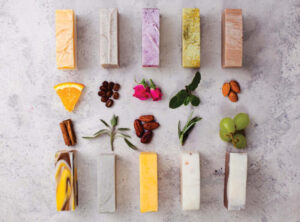Plastic pollution is a growing environmental challenge, and making small lifestyle changes can lead to a significant impact. One simple yet effective switch is adopting plastic-free hair washing methods. Traditional shampoos packaged in plastic bottles contribute to global waste, and many contain synthetic chemicals that may strip the scalp of essential oils. Fortunately, eco-friendly hair care alternatives cleanse hair effectively without adding to plastic pollution. This guide explores sustainable hair-washing solutions and their benefits for both your hair and the environment.

Why Switch to Plastic-Free Hair Washing?
1. Reducing Plastic Waste and Environmental Impact
The beauty industry produces millions of plastic shampoo and conditioner bottles yearly, with many ending up in landfills or polluting oceans. These bottles take centuries to decompose. Research from Environmental Science & Technology highlights that microplastics from personal care products are a major contributor to marine pollution. Switching to plastic-free alternatives significantly reduces plastic waste, contributing to a cleaner planet.
2. Avoiding Harmful Chemicals for Scalp and Hair Health
Many commercial shampoos contain harsh sulfates, parabens, and artificial fragrances that can disrupt the scalp’s natural balance. A study in The Journal of Dermatological Science warns that frequent exposure to sulfates can weaken the scalp barrier, increasing sensitivity and irritation. Choosing plastic-free alternatives formulated with natural ingredients supports scalp health while reducing exposure to harmful substances.
3. Supporting Ethical and Sustainable Brands
Eco-conscious brands are increasingly offering biodegradable, refillable, and package-free hair care products. Supporting these businesses helps drive the beauty industry toward sustainable production practices.
Best Plastic-Free Hair Washing Alternatives
There are several effective natural alternatives to conventional shampoos. Below are some of the top plastic-free hair-washing methods:
1. Shampoo Bars: Long-Lasting and Waste-Free
Shampoo bars are a popular and effective alternative to liquid shampoos. They are compact, highly concentrated, and eliminate plastic waste.
How to Use a Shampoo Bar:
- Wet your hair thoroughly.
- Rub the bar between your hands or directly onto your scalp to create lather.
- Massage gently, then rinse thoroughly.
- Follow with a conditioner bar if needed.
Switching to shampoo bars has helped me reduce scalp irritation while making my hair feel cleaner for longer. They are also convenient for travel and storage.
2. Herbal Hair Wash Powders for Natural Cleansing
Ayurvedic herbal powders such as shikakai, reetha, and amla have been used for centuries to cleanse and strengthen hair naturally.
How to Use Herbal Powders:
- Mix 1-2 tablespoons of powder with warm water to form a paste.
- Apply to the scalp, massage gently, and leave it on for a few minutes before rinsing.
Incorporating herbal powders into my routine improved my hair’s texture and reduced frizz. The transition required patience, but the long-term benefits were noticeable.
3. No-Poo Method: Baking Soda and Apple Cider Vinegar
The “No-Poo” method replaces traditional shampoos with baking soda for cleansing and apple cider vinegar (ACV) for conditioning.
How to Use the No-Poo Method:
- Mix 1 tablespoon of baking soda with 1 cup of water.
- Apply to the scalp, massage gently, and rinse thoroughly.
- Follow with an ACV rinse (1 tablespoon ACV in 1 cup of water).
Studies in The International Journal of Trichology suggest that excessive baking soda use may cause dryness due to its high alkalinity. It’s essential to monitor scalp health and adjust use accordingly.
4. Rye Flour Wash: A Gentle, pH-Balanced Cleanser
Rye flour is an excellent natural shampoo alternative, rich in vitamins and minerals that nourish the scalp.
How to Use Rye Flour:
- Mix 2 tablespoons of rye flour with warm water to form a paste.
- Apply to the scalp and massage gently.
- Leave on for 5 minutes before rinsing thoroughly.
I personally found that rye flour left my hair soft and fresh without stripping natural oils.
5. Clay-Based Hair Cleansers: Ideal for Oil Absorption
Bentonite and rhassoul clays are known for their ability to absorb excess oil and detoxify the scalp.
How to Use Clay Cleansers:
- Mix 2 tablespoons of clay with water to create a paste.
- Apply evenly to the scalp and let it sit for 3-5 minutes.
- Rinse thoroughly.
Clay-based cleansers work well for oily hair types but should be used in moderation for dry hair to prevent over-drying.
How to Transition to Plastic-Free Hair Washing
Switching to natural cleansers requires an adjustment period. Follow these tips for a smooth transition:
- Be patient: Your scalp may take a few weeks to regulate oil production.
- Use a boar bristle brush: Helps distribute natural scalp oils evenly.
- Rinse thoroughly: Some natural cleansers may leave residue if not washed out properly.
- Stay hydrated and eat well: Scalp and hair health depend on proper hydration and a balanced diet.
Where to Buy Plastic-Free Hair Care Products
Many ethical brands offer plastic-free alternatives. Look for:
- Biodegradable, compostable, or recyclable packaging.
- Refillable containers or solid hair care alternatives.
- Organic, plant-based ingredients free from synthetic additives.
Online retailers such as Ethical Consumer, Zero Waste Store, and Eco Roots offer a variety of sustainable hair care solutions.
Final Thoughts: A Simple Change for a Big Impact
Switching to plastic-free hair washing benefits both the planet and personal hair health. By opting for alternatives like shampoo bars, herbal powders, and clay cleansers, individuals can significantly reduce plastic waste while maintaining a healthier scalp. While the transition may take some time, the long-term benefits—both for the environment and well-being—make the switch worthwhile.
For further research on sustainable hair care, refer to The Journal of Cleaner Production and The International Journal of Cosmetic Science.
How to Choose Natural and Eco-Friendly Cosmetics?
Eco-Friendly and Skin-Safe Fabrics: Choosing Materials That Benefit You and the Planet

I’m Victoria, the creator behind Eva My Balance. Passionate about beauty, wellness, sustainable living, and mindful self-care. My mission is to inspire you to live consciously and beautifully—inside and out.


